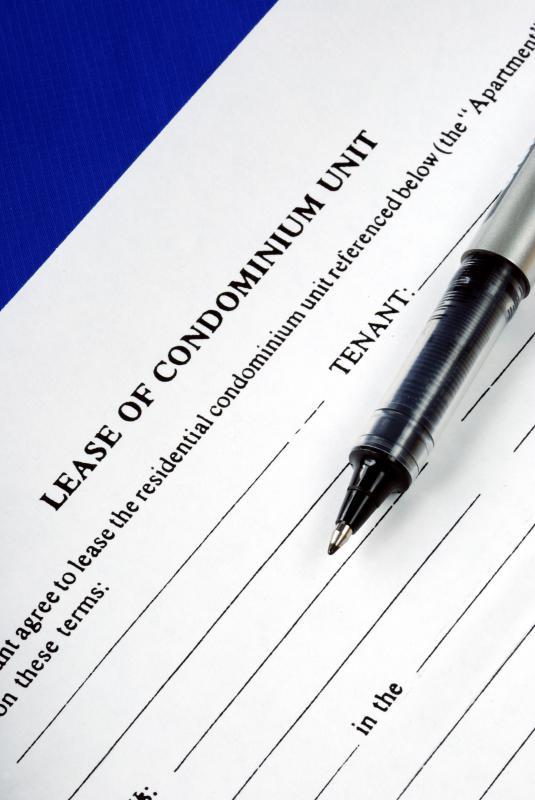At WiseGEEK, we're committed to delivering accurate, trustworthy information. Our expert-authored content is rigorously fact-checked and sourced from credible authorities. Discover how we uphold the highest standards in providing you with reliable knowledge.
What does a Condominium Lawyer do?
A condominium lawyer represents owners in disputes arising from condo ownership. The functions and duties of a condominium attorney are varied, depending on who the lawyer is representing and what the nature of the dispute is. A condo lawyer can represent an owner, a tenant or a condo board.
Condo ownership is a unique type of property ownership. Although a condo owner owns a 100 percent interest in his condo unit, he generally also has a shared interest in the building the condo is housed in, as well as in amenities within the building. Because of this shared type of property ownership, certain issues can arise which may cause one or more individuals involved in a dispute to hire a condominium lawyer.

With shared ownership, there must be some method of determining who will pay for upkeep and how the space will be shared and governed. Normally, a condo board or condo association is responsible for maintaining order and regulating the common spaces in condo buildings. All owners of a condo within a given building generally must pay fees or association dues to the condo board and must comply with the rules associated with the condo board.

When disputes arise between a person who owns a condo and the condo board, a condominium lawyer may be called upon. The lawyer may represent either the board or the owner of the particular condo who is having the dispute. The attorney will owe a fiduciary duty to represent the interests of whichever party he represents.
The condominium lawyer can file a lawsuit to compel a tenant to comply with condo board rules, if he is working for the condo board. He can also issue warnings of pending legal action if a condo owner does not comply with rules or does not pay condo fees. The attorney may also help the condo board sue for unpaid dues required as part of condo ownership.
A condominium lawyer who is representing a condo owner can file actions against the condo board if the condo owner believes his rights of ownership are being limited unfairly by the board. He can also help a condo owner facilitate negotiations with a condo board when problems arise. His aim may be to help prevent litigation through negotiation and settlement, or to file a lawsuit to help a condo owner obtain damages or receive an injunction — an order requiring the condo board to stop a certain behavior — or a motion to compel, which is an order requiring the condo board to do a certain behavior.
AS FEATURED ON:
AS FEATURED ON:












Discuss this Article
Post your comments